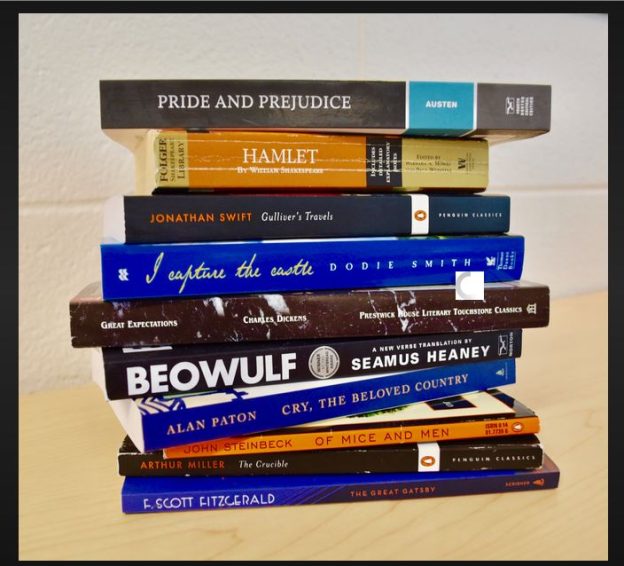The fraught relationship between state and society carries over into classroom and town hall. Something of a commonplace in police state U.S.A. is the scene in which a citizen is arrested for speaking his mind to a public official, pedagogue or politician.
Our story begins with a dad, William Baer, a lawyer, I believe, who resides in New Hampshire, the state whose motto is “Live Free or Die.” For speaking out of turn at a school board meeting, Baer was cuffed and carted out of a forum of educrats and obedient parents, herded together at the Gilford high school. An arrest and a charge of disorderly conduct followed—Baer, after all, had exceeded the talk time allotted to him.
“It was basically, you make a statement, say what you want and sit down,” the dad told a local television station. “‘Sit down and shut up’ … not how you interact with adults.” In the background to the online YouTube clip of the event one can hear the dulcet voice of a female emcee, delighting in the petty abuse of power over a powerless parent.
Mr. Baer was protesting a novel which was required reading in his 14-year-old daughter’s English class: “Nineteen Minutes” by home girl Jodi Picoult. (One of Australia’s finest writers, also the copy editor of this writer’s last book, relates that every time he gets on a train or a bus, there seems to be some female or three reading a Jodi P. “masterpiece.”) Easily more offensive than the salacious sex scene on page 313 of Picoult’s novel is the rotten writing throughout:
“‘Relax,’ Matt murmured, and then he sank his teeth into her shoulder. He pinned her hands over her head and ground his hips against hers. She could feel his erection, hot against her stomach. ” … She couldn’t remember ever feeling so heavy, as if her heart were beating between her legs. She clawed at Matt’s back to bring him closer. “‘Yeah,’ he groaned, and he pushed her thighs apart. And then suddenly Matt was inside her, pumping so hard that she scooted backward on the carpet, burning the backs of her legs. … (H)e clamped his hand over her mouth and drove harder and harder until Josie felt him come. “Semen, sticky and hot, pooled on the carpet beneath her.”
The book’s titillating topics—bullying, school shootings, teen sex and pregnancy—verge on the political. Inculcating kids early on with these cumbersome, constricted constructs serves to stunt young minds. The young reader is intellectually disemboweled, as he is steered into thinking along certain narrow, politically pleasing lines.
Look, the value each one of us places on consumer goods and cultural products in the marketplace is subjective. This Subjective Theory of Value, so central to the excellent Austrian School of Economics (my own school of thought), however, should not be confused with the objective standards that determine the quality of a cultural product.
You might prefer to purchase one of Toni Morrison’s God-awful tomes, but the objective fact is that she’s no match for Shakespeare. Never will be. Likewise, based on complexity, skill, mastery and intricacy—it is immutably true that B.B. King is no match for Johann Sebastian Bach. Irrespective of popular preference, there are objective, universal criteria that make some cultural products superior to others.
The ignoramuses present at the school board meeting are beyond help. Not so the fine Mr. Baer’s daughter. Schools will puff their reading lists with substandard titles of mass appeal. Parents need not do the same. This list is for William Baer—and all parents who wish to feed young minds with richly textured, inspiring, gripping, superbly-written works that will forever after remain unmatched:
• “Ivanhoe” by Sir Walter Scott
• “The Count of Monte Cristo” by Alexandre Dumas
• “Robinson Crusoe” by Daniel Defoe
• “Treasure Island” by Robert Louis Stevenson
• “Arabian Nights” by many Arabic geniuses
• “A Tale of Two Cities” by Charles Dickens
• “David Copperfield” by Charles Dickens
• “Oliver Twist” by the same genius
• “The Adventures of Tom Sawyer” by Mark Twain
• “The Adventures of Huckleberry Finn” by Mark Twain
• “Tom’s Midnight Garden” by Philippa Pearce
• “The Lion, the Witch, and the Wardrobe” by C. S. Lewis
• “The Last of the Mohicans” by James Fenimore Cooper
• “Les Misérables” by Victor Hugo
• “Around the World in Eighty Days” by Jules Verne
• “The Black Stallion” by Walter Farley
• “Wuthering Heights” by Emily Brontë
• “Jane Eyre” by Charlotte Brontë
• “Pride and Prejudice” by Jane Austen
• “Sense and Sensibility” by Jane Austen
• “Mansfield Park” (ditto)
• “Lord of the Flies” by William Golding
• “Middlemarch” by George Eliot
• “Silas Marner” by George Eliot
• “Daniel Deronda” by George Eliot
• “How Green Was My Valley” by Richard Llewellyn
• “The Good Earth” by Pearl Buck
• “1984,” by George Orwell
• “Animal Farm” by George Orwell
To spice things up for the precocious young reader, do add Edgar Allan Poe, Roald Dahl’s “Kiss Kiss” and “The Secret Diary of Adrian Mole,” Shakespeare, Balzac, Dostoyevsky, Flaubert, Tolstoy, Herman Melville, author of Moby-Dick, Don Quixote by Cervantes, Kafka, Albert Camus, Rudyard Kipling. And Molière, “one of the greatest masters of comedy in Western literature.”
Without the literary canon, young minds are doomed to become as dim and sclerotic as those of the educators who assign them the piss-poor reading material aforementioned. The literary canon is the best antidote to the educational Idiocracy.
©2014 ILANA Mercer
WND, Junge Freiheit, Target Liberty,
Quarterly Review, Praag.org & LewRockwell.com
December 5
CATEGORIES: Economics, Education & Miseducation, English, Literature, Political Correctness, Popular Culture

 print
print